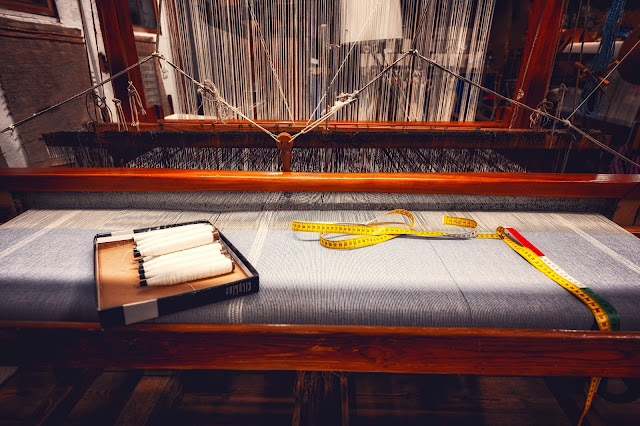Textile is a term originally applied only to woven fabrics, now generally applied to fibers, yarns, fabrics or product made of fiber, yarns, or fabrics.
Food, shelter, and clothing are basic human needs. Most clothing is made from textiles, and shelters are made more comfortable and attractive with textile.
Importance of textile
We are surrounded by textiles from birth to death. We walk on and wear textile product; we sit on fabric covered chairs and sofa; we sleep on and under fabrics; textiles dry us and keep us dry; they protect us from sunlight, fire, and infection.
What is textiles technology all about?
Textile technology is all about using your knowledge and skills to plan, design and make good quality textiles products.
Fiber
Any hair like substance natural or manufactured in which the diameter is negligible in comparison with the length, is called fiber. It is the smallest components with suitable characteristics for being processed into and could separated from fabrics.
Yarn
An assemblage of fibers that is twisted or laid together so as to form a continuous strand that can be made into a textile product.
Fabric
A flexible planar substance constructed from solution, fiber, yarn or fabrics in any combination which has length width and thickness.
Grey fabric
A grey or greige fabric refers to an unfinished material that comes out from a loom or knitting machine and that has neither been fully bleached nor dyed.
Dyeing
Aqueous dyeing is simply called dyeing. Coloration by dyeing involves the use of chemical dyestuffs called dyes, which are capable of combining with the textile fiber molecule, usually when in a water solution.
Printing
Textile printing is a process that applies a single or multi colored pattern also known as design on a white or dyed background fabric, using textile dyes or pigment in thickened form.
Finishing
It is the final processing of the fabric and its purpose is to make fabric suitable for its intended end use.
Finished fabric
Fabric has been processed by dyeing, printing or finishing and is ready for use.

This is an informative blog that provides a clear introduction to textiles and their significance in our daily lives.
ReplyDeletePortable Dust Collector Manufacturer
web sealer manufactuer
The detailed explanations of terms like fiber, yarn, and fabric make it a great resource for beginners.
ReplyDeleteLaser engraving machine in delhi
SEO Company in India
The distinction between grey fabric and finished fabric is explained very well; it's easy to understand for non-experts.
ReplyDeleteIndustrial Slotted Angle Rack in faridabad
Industrial Exhaust Fans
The explanation of dyeing and printing processes is concise yet thorough, making the technical details accessible.
ReplyDeleteShrink Packing machine in delhi
laser welding machine in delhi
Including the role of textiles in protection, such as from sunlight and fire, is a nice touch.
ReplyDeleteSEO Services
ultratech cement apply dealership
The inclusion of real-life applications, such as furniture and clothing, makes the information relatable.
ReplyDeletelaser engraving machine in delhi
SEO Company
I liked the structured approach, breaking down the topic into fiber, yarn, fabric, and finishing processes.
ReplyDeleteBelt conveyor manufacturer
Office Furniture Manufacturer Noida
The blog serves as an excellent educational resource for students and professionals alike.
ReplyDeleteWarehouse Storage Racks in delhi
Tunnel Ventilation system
The definition of textiles as extending beyond just fabrics is enlightening and broadens the reader's perspective.
ReplyDeleteshrink wrapping machine in delhi
Laser cutting Machine in delhi
Any hair like substance natural or manufactured in which the diameter is negligible in comparison with the length, is called fiber. It is the smallest components with suitable characteristics for being processed into and could separated from fabrics.
ReplyDeletecricut graphics
cricut templates
new year's cricut ideas
cricut logo ideas
cricut christmas fonts
critcuit